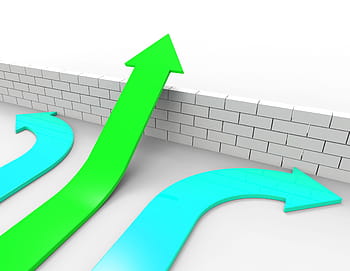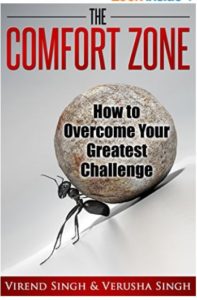Table of Contents
These days as we all face the threat of a virus that changed all of our lives and took away the comfort zone that we were used to, it may be of interest to understand the nature of what is called the comfort zone.
Everything we knew came to a halt almost overnight and we were left to figure out, how to think and be, in an unknown circumstance which is not comfortable at all.
It’s not so easy to understand what it is, because unbeknownst to us, we are in one comfort zone or another (of the many we have) most of the time!
So it’s not obvious.
As the saying goes: “the goldfish is the last to know it’s in the water”.
Haven’t you experienced in life a situation where you got comfortable with something and took it for granted? And then suddenly reality gave you a smack? (happening these days).
Understanding The Nature of the Comfort Zone
Most people gravitate towards what is easy and comfortable while trying to use the path of least resistance.
This is so they can accomplish everything they aspire to…just like water does, (it flows to the path of least resistance).
Curiously science tells us that humans are 80% water. Interesting!
So in many ways, it is natural for us to seek the easiest path we can take in everything.
“Natural” is the first response, and “what’s so wrong with seeking a comfort zone?”
Well, it is natural to an extent, and there’s nothing wrong with it as long as it doesn’t control you.
The other 20% fire that we really are grows when our backs are against the wall when we struggle when we need something urgently.
That is when we get creative, find new ways to do things that we have never done before.
So, it is important, therefore, to keep in mind that struggle is the “switch-on” mechanism. It is the bedrock of natural growth, thinking outside the box, and personal development.
Finding & Overcoming Your Struggle
The best example, easily observable, is when a child learns to walk. What drama! What a struggle and what a joy of accomplishment.
Aren’t you happy when you do something new that you thought you were not comfortable with and suddenly find joy and satisfaction you never felt before?
We had an example here at home. We have a teenage girl who thinks she knows everything.
When I suggested to her to run barefoot on the grass, you can imagine the face she made, this was face 1.
Face 2 was when I suggested to her to run barefoot on the grass on a rainy day! Imagine the horror on face 2!
Today she actually had the opportunity to run with a friend barefoot on grass on a rainy day.
Face 2 changed to face 3 when she proudly exclaimed how enjoyable and refreshing and wonderful she felt. (And that is definitely now an open mindset for her to do in the future).
This may be a simple example, but there are thousands of others in our everyday life.
And were we to be aware of them, we would be horrified by how we limit ourselves and our perceptions, and consequently our abilities to breakthrough and discover new pathways…it’s in everything.
Basics to Keep in Mind
How does a comfort zone form up?
It is obviously a place where a person feels comfortable. Usually, what makes people comfortable is that they know what they are doing without down-turns or bad surprises.
Change is always uncomfortable. By going through the struggle to deny comfort we achieve change. Change is always outside our comfort zone and that’s a key thing to understand.
Comfort zones and resisting a comfort zone -“lockdown”, shapes the thoughts and attitudes of a person and define who they are. Their ability to change, excel and often determine what is a win and what is a success for them.
There are different types of comfort zones; physical, mental, and emotional.
We are all aware of the physical ones, like laying on the beach with a Taquilla, which, again, nothing wrong with it, we need it from time to time.
Or eating certain foods that are tasty to us but are not necessarily healthy. Or the amount of food we eat, here we let the comfort of taste and quantity dictate our level of health. And it becomes a comfort zone that we often stick to and even defend.
But we are seldom aware of the mental and emotional comfort zones because we think that it is who we are. Not true!
We can be very different.
Take as an example, what we have been witnessing in many places around the world where a wave of appreciation engulfed neighborhoods and cities as all people clapped their hands at 7 pm every evening as a mark of appreciation and value to the heroic acts of all the health care workers.
It demonstrated a breakthrough from the comfort zone of perhaps just sitting and watching TV to a new level of togetherness that wasn’t there before.
People made the effort to thank other people, and to show them that they care for what they are doing.
Why not create a comfort zone of appreciation and value to our fellow human beings?
Questioning the Comfort Zone
Question – How did you form your Comfort Zones? (or did you?)
Answer – By Repetition, consciously or unconsciously.
Habits become a comfort zone even if they are bad habits, such as smoking. Once we repeat things we become comfortable even if those things are counter-productive to everything we say we want.
The reason – The reason that we form comfort zones is to escape the stressful lives we live which are characterized by many unknowns. The Comfort zone is known. You don’t need to think about it. You can just be in it.
Comfort zones reduce the threat of the unknown and puts us in control of what we know.
When we find a less stressful circumstance we immediately adapt to it, and after a few times of repeating the same action, it becomes a comfort zone.
The comfort zone just “happens” to people without conscious decision.
It is a known place free of bad surprises, where they can relax…or so they think!
The danger – The danger in the comfort zone is that it often stands between a person and their future potential.
The reason is that the next personal development success comes from what they don’t know, which is uncomfortable, and not from what they are comfortable with.
Many people are imprisoned by their comfort zone without realizing the fact.
Particularly in the way they think, which is why creativity in adult life seems to be rare.
What happened to that creative spark we all had as children and that you can see today in every child? Somewhere in the journey from childhood to adulthood that creative spark got lost and the Comfort Zone formed up instead.
The Thinking Comfort Zone

The thinking comfort zone is formed of repeated pathways of thinking.
It is a thought pattern that repeats itself and eventually becomes an attitude. Attitude forms up from a way of thinking that one repeats, and subsequent actions that one takes.
For example, if a person jumps to conclusions and makes hasty decisions before they thoroughly check the facts, and they do it repetitively, without check or guidance, then eventually they become a person who is not careful and is ineffective.
This in turn leads to other attitudes and ways of thinking that “hang” in the same circle or zone.
Thus a comfort zone forms up, which then defines what they think they can and cannot do.
The Comfort Zone Challenge – Can You Let The Past Be in The Past?

Our past, which is where our comfort zone was established is in opposition to our ability to Change!
Who we are today, for the good or bad, was formed in our past.
It is where we formed our identity about who we think we are and feel comfortable with because we don’t know anything else.
The Challenge – Can you let the past be in the past and live each day as if it is truly a fresh start?
This may be uncomfortable at first, but after a while, you will not want to do anything else. Because of the great richness that will come to you from such a life path.
The Remedy – How Do You Get Out Of Your Comfort Zone?
Consciously Deciding Your Comfort Zone is a great remedy
Mind Designated Comfort Zone – it’s critical that you consciously decide, with full awareness, what is the comfort zone you choose to have.
Your conscious choice in the matter makes all the difference. It should not form up by default or by avoidance of personal responsibility. You Should decide!
There’s nothing wrong with having it “as long as it doesn’t control you“.
The designated comfort zone is formed by your decision of what you will think about that makes you feel good when you are idle.
A great choice is to deliberately think of the changes you need to make and how great it will be for you.
This is challenging at the start, but after a while, it becomes second nature, (comfort zone) because it is natural for humans to decide consciously and not have things decided for them.
Finally
Finding A New Comfort Zone at Times of Crisis
Adjust to the new circumstance and let it be the stuff that is perhaps new for you.
- Finding time for yourself
- Calming the fears by being thankful for what you do have now, which is a lot
- Building your immune on 3 levels; physical, mental and emotional
- Helping others
- Thinking strategically ahead to a new way of life
Much can be said about each of the points above but the point is that if you decide that these aspects become a comfort zone, they will.
I am now conducting webinars on THE POWER OF THINKING & EMOTIONS AT TIMES OF CRISIS which help people think strategically, outside the box, in a way that prepares them for the unknown, while creating new conscious comfort zones that fit the times.
Let’s talk!
Eli Harari
The Life Coach for Professionals™



Pingback: 5 Steps to Grow as a Leader - The Thinking Coach
Pingback: Great Jobs - 6 Highest Paid Jobs To Look Out For! - The Thinking Coach
Pingback: How To Use Cryptocurrency In Your Business - 5 Super Points - The Thinking Coach
Pingback: Follow Your Gut - Discover What Is The Decision Making Process About
Pingback: Perception vs. Reality In Decision-Making
Pingback: 4 Simple Ways To Manage Your Time Wisely - The Thinking Coach
Pingback: Leadership Training - 3 Critical Keys
Pingback: What is Paradigm Shift - A Key to Creativity
Pingback: Redefining WhInvesting In Team Building Training Is The Best ROI With Millennials & Z'sat Is Team Building In The 21st Century
Pingback: Build A Successful Healthcare Career - 4 Great Tips - The Thinking Coach